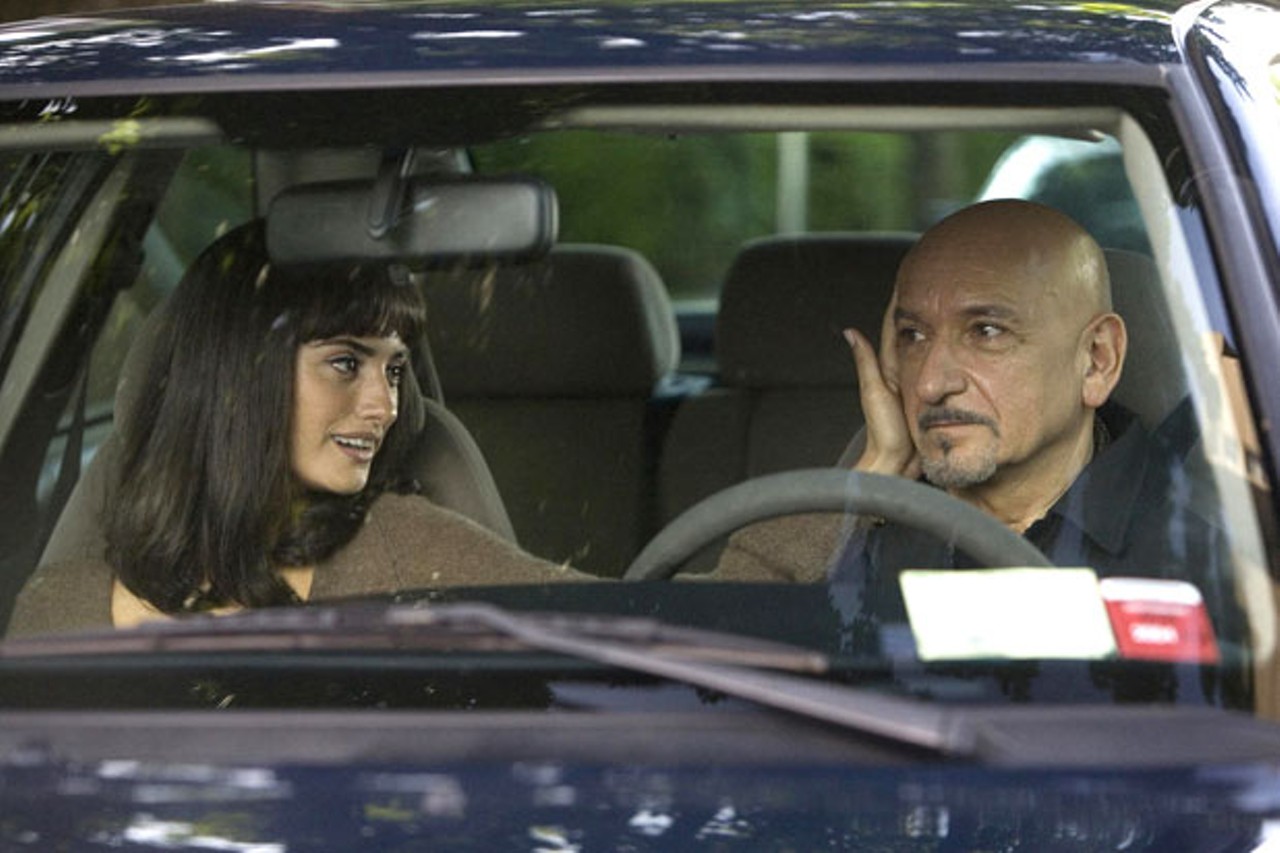By Chlotrudis Independent Film Society
Rating: 5 cats
Director: Isabel Coixet
Starring: Ben Kingsley | Deborah Harry | Dennis Hopper | Patricia Clarkson | Penélope Cruz | Peter Sarsgaard

Country: united_states
Year: 2008
Running time: 112
IMDB: http://www.imdb.com/title/tt0974554/
Michael says: “I missed ELEGY in the theatre last year, and was able to catch up with it on Blu-Ray this morning. It firmly propels Isabel Coixet into that category of talented filmmakers whose films I will not miss. Never have I seen a film adaptation so thoroughly and beautifully capture the layers and complexity of a novel. Toward the end of the film I was struck so strongly by the feeling that I had been reading a really good novel. Now ELEGY is based on a Philip Roth novel (The Dying Animal), so I trust the source material to be well-written, multi-layered and challenging. As is the norm, I would suspect that Ms. Coixet mined certain themes and sequences in the novel to present on screen. But as is so rarely the case, if ever, there was such a sense of fullness to ELEGY, so many different themes and points-of-view so well and fully explored. Enough for a novel, somehow conveyed as if by magic in two hours on the screen.
“I really watched ELEGY grudgingly – and at first it was living up to all my low expectations. Aging professor embarks on the pursuit of a gorgeous student. He’s coming to terms with his mortality. But thanks to Coixet’s eloquent visual language, and the talents of the entire cast which includes not only Ben Kingsley and Penelope Cruz in the lead roles, but outstanding supporting roles by Patricia Clarkson, Dennis Hopper, Peter Sarsgaard, and Deborah Harry (who in her very brief screen time offers a powerful moment).
“An elegy is a lament for the dead, and the exploration of aging and the nearness of death is certainly one of the major themes of the film. There is also an examination of relationships between men and women, a surprisingly realistic and moving depiction of friendship between two men, a look at the morality of infidelity, and the changing dynamic between an estranged father and son. At first I was thinking about how the film really exemplified how women are consistently the ones who live in the real world and know the score, while men flail about like children, racing to be men, then once attaining that coveted state, try desperately to find their youth and childhoods again. I wonder if this is inherent in Roth’s novel, or if some of Coixet’s feminist sensibilities bleed into her film. Either way, the end result is powerful, beautiful, and exquisitely haunting. I don’t know if I’ve every enjoyed a film so much that I’d expected to not even make it halfway through. I wish I had seen this film last year because if nothing else, Coixet deserved a Best Director nomination… and possibly even the prize for the year. 5 cats”
